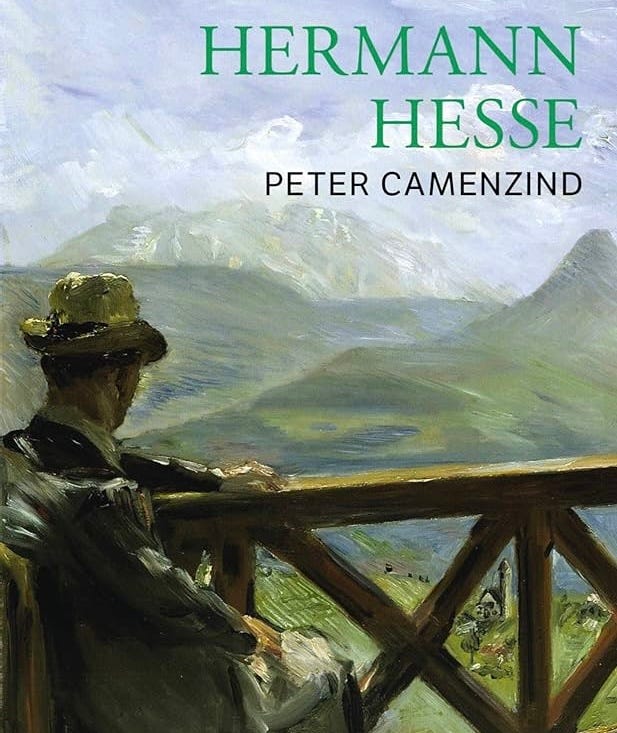Its Okay to Go Home: 'Peter Camenzind' (Herman Hesse, 1904)
A review of Peter Camenzind, by Herman Hesse (1904)
Sometimes, a book finds you at just the right time. Peter Camenzind was one of them. The novel follows a boy from a small alpine village in the early 20th century, nature-obsessed, spiritually curious, and precocious (if not academically), his character leads him to wander away from his homeland and into the wider world. Here he pursues literary fame, academia, friendships, art, and love. Almost all of these fail him or leave him with a painful lesson. He searches for consolation in many places. He writes excoriating criticism whilst neglecting his own creative crafts. Then he falls to drink, becoming a rude, cantankerous drunk. But his spirit is always a wanderer’s spirit. Peter Camenzind cannot remain forever in the wine-soaked corners of dingy taverns. So he wanders to Italy, to Assisi, where he finds consolation in the natural spirituality of St. Francis and the people in the surrounds of this monastic solitude.
All these roads eventually lead home, back into the Alps. He has gone far and is in many ways a better man for it. In many ways, he is also worse. But a lot of what he was searching for existed where he grew up.
There is a sweet melancholy in this realisation, in the acceptance that fulfillment does not always lie over the next hill. This is almost painful for Camenzind, in the sense that his wanderers soul is not immune to the pull of the sedentary simplicity which compromises his people. His return entails complicated emotions, almost a remorse that it took him so long to realise the nobility in the humble life.
There is reason to mourn the time lost in vain pursuits, and adventurous times to miss. In Camemzind’s case, his time was spent being a cantankerous drunk, chasing forlorn loves, and working on passionless art. He must also accept that his pursuits of other paths have changed him, and to a degree forecloses the total acceptance of his return to the alpine peacefulness. But importantly, this foreclosure is never absolute. He can always open himself back up to the humble life, and slowly rebuild his relationship with it. Peter Camenzind is a gentle novel about the tension between an adventurous spirit and what in Welsh is called Hiraeth, an untranslatable term for the grief-laden longing for one’s homeland.
I said this book found me at the right time, as I read it upon finding out I was going to be a father and deciding to move back to my childhood town after living carefree in a vibrant and excitable city. It did not only console me that the tensions I felt were natural—perhaps even unavoidable. But it helped me see that there was as much fulfilment in my homeland as there was in my adventures beyond.
-Ben Shread-Hewitt




